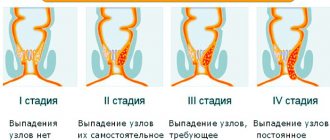General recommendations for pregnant women
1. You cannot lift anything heavy. 2. Do not ride a horse or horse, ride a bicycle, do not jump, etc. 3. If you are frightened or afraid, do not grab your face, hands or other places, as the child may have red or blue birthmarks in such places. 4. Do not look at people with obvious physical deformities, at terrible and difficult events, avoid watching horror films, mediocre Russian films and similar shows. All this is reflected through the nervous system on the unborn child. On the contrary, you need to hang a picture in front of you that would depict beautiful children and beautiful, calming nature. 5. Do not tighten the waist - as this can easily lead to deformity of the fetus. 6. To make childbirth easier, you should lie down as little as possible, walk as much as possible, and do light physical work. 7. From the second half of pregnancy (and better before), do not have sexual intercourse, since contractions of the uterus affect pregnancy. 8. Check your urine more often for the presence of protein, which indicates kidney disease. If it appears, you should immediately consult a doctor. 9. To form bones, the child needs lime, and he will “pull” it from the mother’s teeth, so a pregnant woman should drink 2 tablespoons of lime water every day, otherwise her teeth will crumble. 10. From time to time you should go for a check-up with a dentist. 11. Be sure to shave your armpit hair and wash it daily with warm water. This is necessary so that the fungus, which can live in the armpits, does not reach the mammary glands, and then to the newborn. 12. It is necessary to carefully monitor the proper functioning of the intestines. It is advisable not to use laxatives so as not to provoke contractile activity of the uterus. For constipation, you can give an enema of clean boiled water or a suppository. 13. For proper intrauterine development of the fetus, it is advisable to eat two teaspoons of honey with each meal - this contributes to the development of the child’s nervous system. 14. During pregnancy, the expectant mother can take the following supplements: 1) in the morning before breakfast, drink 1 glass of water with 1 teaspoon of apple cider vinegar;
at breakfast (or lunch, dinner) - 1 glass of water with 2 teaspoons of apple cider vinegar and 2 teaspoons of honey. 2) Carrot juice Drink 1/3 glass for 30 - 40 minutes. before meals. It has been noticed that by the condition of the child’s teeth it is possible to determine whether the mother’s nutrition during pregnancy was adequate.
Under good conditions of intrauterine development of the child, insufficient nutrition after birth will not have a big impact on his body. 15. One of the diseases dangerous for pregnant women is rubella; it has a detrimental effect on the fetus (can lead to the development of deformity), especially when the disease occurs in the first four months of pregnancy, when the formation of organs and systems occurs. Therefore, pregnant women need to guard against rubella infection. 16. During the entire period of pregnancy, it is necessary to do gymnastics. There are a lot of special manuals on gymnastics for pregnant women with a set of exercises for each period of pregnancy. 17. During pregnancy and after childbirth, due to possible stretching of the abdominal wall, especially in women with weakened muscles, wearing a bandage is recommended. 18 It should also be remembered that from the beginning of the sixth month of pregnancy you cannot do stretching exercises; such a desire often arises and not perform actions at all, such as hanging laundry on highly stretched ropes, picking fruits from high branches, etc., since such actions (stretching ) can lead to formation inside the uterus and the baby may turn upside down, or take some other abnormal position, which greatly complicates childbirth. 19 In the last months of pregnancy, wearing high-heeled shoes is harmful. Due to muscle strain, pain in the legs and back may occur. 20. When using medicinal plants during pregnancy, you should remember that some of them are contraindicated for pregnant women. A list of these plants is given below.
Nutrition during pregnancy
During pregnancy, you should pay special attention to your diet. No diets are inappropriate during this period, since you need to think not only about yourself, but also about the child.
You should also limit yourself and not become overwhelmed from the first stages of pregnancy; you must not forget that the child passes through the birth canal, and an overly large fetus and an excessively plump mother’s body can significantly complicate this process.
We recommend reading: Fetal development by week of pregnancy, 1 week of pregnancy, 2 week of pregnancy
Everyone knows that during pregnancy, the child receives the nutrients necessary for its formation from the mother’s blood.
Therefore, food should contain:
- Proteins form the skeletal system of the fetus. The main source of protein is meat; it must be included in the diet of a pregnant woman, even if she is a convinced vegetarian.
- Fats – the amount of fatty foods during pregnancy should be limited, but fats are also necessary for the body of the mother and child. Therefore, vegetable oils need to be added to food - olive, corn, sunflower, as well as butter.
- Carbohydrates – During pregnancy, it is extremely important to change the quality of carbohydrates consumed. We reduce the so-called “low-health” carbohydrates - sweets, buns, various confectionery products. In turn, we increase the amount of healthy carbohydrates rich in fiber - wholemeal baked goods, cereals, vegetables and fruits.
- Vitamins – there are several groups of vitamins that you need to know:
- Vitamins of group A - necessary for the normal development of the placenta and protection of body cells from toxic products. Vitamin A is rich in yellow and red vegetables and fruits (carrots, tomatoes, peaches, apricots, melon, etc.)
- B vitamins – form muscle fibers, found in rice, peas, and animal liver.
- Vitamins of group C - strengthens and stimulates the immunity of mother and child. Rose hips, oranges, tangerines, currants, sea buckthorn, etc. are rich in this vitamin.
- Vitamins of group D – helps in the formation of the child’s skeletal system, found in fermented milk products, as well as seafood.
- Vitamins of group E are a necessary component for the smooth functioning of the mother’s reproductive system and are found in butter, nuts, and liver. In order for vitamin E to be better absorbed in the body, it is recommended to consume it with sour cream.
- The body of the expectant mother needs folic acid , which stabilizes the functioning of the nervous system. Irreplaceable sources of folic acid are greens - onions, parsley, dill, lettuce, etc.
- Minerals (calcium, phosphorus, magnesium, iron) are necessary for the development of a healthy fetus. Since it is extremely difficult to create a diet for a pregnant woman taking into account the daily need for all minerals and vitamins. Therefore, usually as soon as a doctor registers a pregnant woman, she prescribes a complex of multivitamins to ensure the normal development of the child in the womb and maintain the mother’s physical condition in order.
- Liquid – a pregnant woman is advised to drink a lot. But many people have a tendency to edema, in which case the doctor may recommend reducing the amount of fluid consumed.
Recommendations for a pregnant woman
style=”display:block” data-ad-client=”ca-pub-2971630162946731″ data-ad-slot=”9213322149″ data-ad-format=”auto” data-full-width-responsive=”true”>
Hello, dear guests of our blog! Today the topic of our article is: “Recommendations for a pregnant woman.” Find out what problems await pregnant women in the first 12 weeks of pregnancy and how to deal with them. Read the article.
Sleep and pregnancy: how to get proper rest?
Every person needs proper sleep; pregnancy greatly increases the need for rest, so it is especially important for expectant mothers. But the physiological changes that occur after conception, accompanied by breast tenderness, abdominal growth, pain in the back and limbs, do not always allow for proper sleep.
In a new position, a woman often faces insomnia, and choosing a position suitable for sleeping becomes a real problem. Let's consider the features of a pregnant woman's rest in each trimester, as well as the problems associated with it and ways to solve them.
Features of the first trimester
Expecting a child and giving birth to it is a real miracle. However, at every stage of pregnancy there are dangers and risks that you not only need to pay attention to, but also call an ambulance and start sounding the alarm. Often, inattention to the signs of the body and letting the manifestations of pathology take their course bring negative consequences.
The 1st trimester is the easiest and most difficult at the same time. Light, in the literal sense - there are no false contractions, the weight of the child does not put pressure on the organs, the back and legs do not hurt. Difficult, because a lot of dangers await the expectant mother during these 12 weeks.
Cystitis during pregnancy
Another unpleasant thing. It lies in wait even at the beginning of pregnancy. But don’t rush to take antibiotics - who is better off from it, think about it! Personally, I got rid of cystitis with simple tea from lingonberry leaves (pharmacy collection “Brusniver”). It's not a very pleasant-tasting thing. You need to brew it in a thermos and drink, drink, drink. Instead of tea and other things that you usually drink there. A lot of! Often! Be patient a little and you will forget about cystitis! The main thing is willpower. Don’t make it too intense, drink for several days.
Recommendations for a pregnant woman
To avoid risks, you must follow the recommendations for expectant mothers:
style=”display:block” data-ad-client=”ca-pub-2971630162946731″ data-ad-slot=”9213322149″ data-ad-format=”auto” data-full-width-responsive=”true”>
- Eliminate bad habits, avoid intoxication;
- Refusal of active physical activity, overwork;
- Regular nutritious meals;
- Healthy sleep for 8-9 hours;
- Avoiding stress;
- Consumption of vitamins, walks in the fresh air;
- Refusal to take pills, except those prescribed by the doctor leading the pregnancy;
- Bowel frequency.
To ensure that the first trimester is not difficult and does not bring a lot of negative memories, you need to visit a doctor and register with the antenatal clinic. He will monitor the pregnancy, give answers to all questions, and help in any situation. This is the key to an easy pregnancy, childbirth and baby’s health.
We recommend reading the article “The first weeks of pregnancy, signs and sensations.” Useful article for expectant mothers. Be sure to read it.
More from my site
style=”display:block” data-ad-client=”ca-pub-2971630162946731″ data-ad-slot=”9213322149″ data-ad-format=”auto” data-full-width-responsive=”true”>
WHAT YOU NEED TO DO TO GET PREGNANCY
BENEFITABLE FOR YOU AND YOUR CHILD?
In order for your pregnancy to be a joy and proceed without problems, only a few conditions must be met:
1.regular visits to the obstetrician-gynecologist, implementation of all his recommendations and prescriptions;
2. correct work and rest schedule;
3. maintaining personal hygiene;
4. rational nutrition;
5. performing gymnastic exercises;
6. good psychological climate in the family, help from your family members;
7. positive attitude toward a favorable outcome of the upcoming birth.
WORK AND REST MODE
A healthy pregnant woman can do normal work. Moderate physical activity trains your muscles, activates the activity of internal organs and increases the overall tone of the body. But you need to avoid work that involves standing on your feet for a long time, lifting heavy objects, as well as exposure to chemicals, dust, radiation and other factors that can harm your baby. There is a list of jobs from which a woman is legally exempt during pregnancy, with transfer to easier work and maintenance of wages. Business trips, overtime work, night work, weekends and holidays are prohibited.
It is not advisable to do housework that requires frequent bending. When doing “sedentary” work, it is useful to place your feet on a bench or a chair, which will protect them from venous stagnation of blood and the development of varicose veins.
During pregnancy, you may notice that you get tired easily,
feel sleepy. Adequate sleep is very beneficial for both you and your child. The optimal duration of night sleep is not
less than 8–9 hours, even better if you find the opportunity for an additional afternoon nap.
During this period, the need for oxygen increases greatly - now not only you, but also the unborn baby needs it, so ventilate the rooms, walk more in the fresh air. It is best if the walks are short but frequent.
A favorable atmosphere in your home, without family conflicts and stress, is very important. With the onset of pregnancy, the psychological perception of certain situations that previously left you indifferent becomes more acute. Your relatives, and especially your husband, should understand this very well and surround you with attention, care, and tenderness.
Don't worry if you notice a decrease in interest in sexual intercourse: this is completely natural during pregnancy. The rhythm of sexual intercourse will depend on the woman’s health. Sexual activity is not recommended in the first 2-3 months of pregnancy to avoid spontaneous abortion and in the last 2 months due to the risk of premature termination and infection of the woman’s genital tract.
You should beware of influenza and other infectious diseases.
Smoking and drinking alcoholic beverages is prohibited.
You should not take any medications without a doctor's prescription. But you don’t need to think that any medications are prohibited during pregnancy - there are simply medications that can have a harmful effect on the unborn child and cause developmental defects in his body. Only the doctor decides what medications to take and in what doses.
PERSONAL HYGIENE
Clothing should not restrict the chest and stomach. The bra size should be changed as the volume of the mammary glands increases. In the second half of pregnancy, it is recommended to wear a special bandage. Shoes should be comfortable, with wide low heels.
Frequent changes of underwear and bed linen are required.
Body care. High levels of the hormone progesterone cause an increase in the secretion of the sebaceous glands of the skin. Take a warm shower 2 times a day, it is advisable to shave the hair under your arms. If you have dry skin, you can use a moisturizing lotion. You will have to refuse hot baths and sauna visits - these pleasures are dangerous, they can lead to premature termination of pregnancy. The external genitalia require special care - they need to be washed several times a day. At the same time, try not to use a strong upward jet of shower.
Oral and dental care. It is recommended to brush your teeth in the morning and evening, and rinse your mouth after every meal. An examination by a dentist and sanitation of the oral cavity are required.
Preparing the mammary glands and nipples for feeding a baby consists of washing them daily with water at room temperature, rubbing them with a terry towel and taking air baths before bed (leave the mammary glands open for 10–15 minutes).
Pull out flat or inverted nipples with clean fingers 2-3 times a day for 3-4 minutes, after lubricating them with cosmetic cream.
NUTRITION
Nutrition for a pregnant woman is of great importance for the normal development of the fetus and the health of the mother. Inadequate nutrition leads to miscarriages, decreased fetal weight, and increases the frequency of child losses after childbirth.
Excessive food consumption causes an increase in the newborn’s body weight, which in turn complicates childbirth: the birth canal and the child are injured.
In the first half of pregnancy, a woman’s diet should not differ significantly from that before pregnancy. You can allow spicy and salty foods; if you have nausea, it is better to eat food in the morning while lying down. Strong tea, coffee, and alcohol should be excluded. Limit foods that cause allergies: citrus fruits, chocolate, etc.
The following diet is recommended: in the first half, 4 meals a day, in the second - 5-6 meals a day, meals at the same hours, the last meal 2 hours before bedtime.
During pregnancy, it is advisable to increase fluid intake to 2 liters per day to prevent urinary tract infections. Acidified drinks are useful: cranberry or lingonberry juice, lemon tea, kidney tea. In late pregnancy, the amount of drinking should be reduced to 1200–1500 ml, and the consumption of table salt should be limited to 5-8 g per day. It is advisable that boiled or stewed foods predominate in your diet.
With an increase in the weight of the fetus and uterus, the need for protein increases to 120 g per day. Proteins are rich in meat, fish, eggs, cottage cheese, milk, and plant products - legumes, cabbage, buckwheat, oatmeal. At the end of pregnancy, you should limit your consumption of meat, especially fried meat and mushroom dishes. The amount of carbohydrates should not exceed 500g per day, and if the pregnant woman is overweight, 300g. It is advisable to obtain carbohydrates in foods rich in fiber (bread, wholemeal flour, vegetables, fruits, cereals). From 14 weeks of pregnancy it is necessary to reduce the consumption of confectionery products and sweets; the amount of sugar should not exceed 40-50g. Reimbursement of energy costs is provided by fats; their consumption increases, but should not exceed 85 g per day. Sunflower and olive oils are recommended from vegetable fats, and butter and ghee from animal fats. Lamb, beef lard, margarine should not be included in the diet.
Particular attention should be paid to the sufficient content of vitamins in food. It is good for you to eat at least five servings of fresh fruits and vegetables throughout the day. Servings can be very small, such as an apple, or a small cup of grapes, or two large spoons of fruit salad, or one glass (150 ml) of fresh juice, or some greens, or a cup of vegetable salad. Fiber, which is rich in plant foods, will help your intestines function.
A pregnant woman's body needs large amounts of calcium, phosphorus, and iron, so the daily diet should include dairy products and foods rich in iron.
Even the most ideal diet will not be able to give your body all the vitamins and minerals it needs. In consultation with your doctor, you must take vitamin and mineral complexes.
GYMNASTIC EXERCISES.
Hygienic gymnastics is indicated during normal pregnancy. It strengthens the muscles of the anterior abdominal wall and pelvic floor, which facilitates the birth process. It is important that the exercises do not make you tired or short of breath. Try not to engage in sports where falls or injuries are possible, such as cross-country skiing or horse riding. At the same time, calm cycling will not harm you, and you can swim without any harm to your health even until the 9th month of pregnancy. Before choosing gymnastic exercises, consult your doctor. Exercise sets vary depending on the stage of pregnancy.
WHAT EXERCISES ARE NEEDED IN THE FIRST HALF OF PREGNANCY?
In the first 16 weeks of pregnancy, the main goal of gymnastics is to teach you proper breathing and the ability to tense and relax your muscles; These skills will be useful to you during childbirth.
The first type of breathing is slow and deep. Place your hands with your fingers spread on the sides of your chest and inhale
so deep that your hands feel how the entire chest is filled with air. Then exhale slowly.
The second type of breathing is shallow. It involves mainly the upper chest. Place your palms on your shoulders and try to take a few quick breaths in and out so that your hands feel your shoulders move up and down. You will need the ability to control your breathing during childbirth.
Another technique that is useful for you to master is relaxation. If you learn to control your muscles in advance, then you will have proper rest between contractions during childbirth and will protect yourself from ruptures. To completely relax, imagine a situation that gives you a feeling of absolute comfort, for example, relaxing on the beach under the warming sun, swimming in warm water. Sit comfortably in a chair with a headrest, place your relaxed arms on the armrests, and place your feet slightly apart.
First you need to relax your facial muscles - perform the so-called “relaxation mask”. Keep your forehead relaxed, lower your eyelids, keep your gaze inward and downward, gently place your tongue on your upper teeth and let your lower jaw drop slightly. After several attempts, you will easily succeed in this technique. Having created a “relaxation mask”, relax the muscles of the back of your head and neck, imagine that your arms and legs are hanging freely, and relax them too.
Mini-training for tension and relaxation using the Nikolaev-Lamaza method is carried out lying or sitting:
1. Consistently tighten your feet, calves, thighs, buttocks, perineum, hands, forearms, shoulders, face. At the same time, focus your attention on the part of the body that you are straining. Then, in the same sequence, relax the muscles, concentrating on them.
2. Tighten your right leg and arm while relaxing your left leg and arm.
3. Tighten both legs while relaxing both arms, and vice versa.
4. Tighten your right leg and left arm and relax your left leg and right arm, then do the opposite. Relax according to your inner command.
WHAT EXERCISES ARE NEEDED IN THE SECOND HALF OF PREGNANCY?
In the second half of pregnancy, perform exercises that will increase the flexibility of the spine and pelvic joints.
1. Get on your knees and lean on your hands. Exhale and arch your back, moving your pelvis forward. After a few seconds, return to the starting position and inhale. This exercise not only develops pelvic mobility, but also helps relieve back pain.
2. Squatting, spread your feet apart. The back should be straight, hands clasped in front at knee level. Without lifting your heels from the floor, push your thighs apart with your elbows. This exercise will improve the mobility of the hip joints and strengthen the muscles of the back and hips.
3. Sitting on a chair, tense and then relax the muscles of the perineum,
repeat the exercise 10–15 times. It can be performed standing, lying down or sitting. This exercise strengthens the pelvic floor muscles, which will be very useful during childbirth.
More details about exercises useful to you are described on the website of the “Code of Health and Longevity” - www.kzid.ru.
HOW YOU CAN MAKE CHILDREN EASIER
Childbirth is physical labor, so you need to learn how to use energy sparingly. There is no need to be afraid of labor pain: fear interferes with the correct course of labor, and you can learn to manage painful contractions in advance. Following some rules of behavior during childbirth will help you.
BODY POSITION
At the beginning of labor, while contractions are still short and infrequent, you can choose the body position that is most comfortable for you. You should not lie on your back for a long time, as in this position the fetus compresses the mother's large blood vessels, reducing blood flow to the placenta. In the active stage of labor, when contractions are frequent, try to change your body position and lie more on your side. If the doctor allows it, walk around, stand, leaning on a chair, kneel, leaning on your hands. When a woman in labor alternates between walking and lying down (alternating an active body posture with a resting posture), childbirth is less painful.
During childbirth, the baby's head presses on the bladder, and urine quickly accumulates in it. A full bladder, in turn, prevents the baby's head from descending into the pelvic cavity. So try to urinate every 2-3 hours.
BREATHING RULES
Your ability to breathe correctly is of great importance for the well-being of the child during childbirth. During contractions, when the uterus contracts, he receives less oxygen and suffers from this. While the contractions are long and not very frequent, you need to breathe deeply so that the blood is well saturated with oxygen. As the contractions become more intense, take several deep breaths in and out at the beginning of the contraction, and as it increases, switch to shallow breathing. Between
During contractions, try to relax as much as possible.
RELAXATION TECHNIQUES
During childbirth, you will benefit from relaxation techniques that you already know about. Use self-hypnosis formulas. Tell yourself: “I am calm. Contractions are a sign of normal labor. Gradually they will intensify. My breathing is even and deep. The muscles are relaxed. The fight will now end, and I will rest.” Contrary to common misconception, childbirth is not necessarily accompanied by pain; in approximately 20% of women they pass painlessly. There are several techniques that will allow you to significantly reduce the feeling of contraction.
METHODS FOR PAIN RELIEF DURING CONTRACTS.
1. Deep and rhythmic breathing. Inhale through your nose for a long time, exhale through your mouth briefly, 16-18 times per minute.
2. Stroking the lower half of the abdomen in the form of light tangential movements with your fingertips. Hand movements are made from the midline of the abdomen above the bosom outward and upward, combined with correct breathing. When moving outward along the abdominal wall, inhale; when the hands return to their original position (through the air), exhale. As the strength of the contractions increases, the gesture becomes wider, the breath is deeper.
3.Pressing the “pain points” while lying on your back:
a) protrusions of the crest bone of the pelvis (anterosuperior iliac spines) on the inner surface of the thumbs of both hands, with the palm and the other four fingers located along the thigh.
Pressure and vibrating movements are carried out during contractions simultaneously with deep breathing.
b) on the outer corners of the lumbar rhombus, for which the woman in labor should place her hands clenched into fists under her lower back, with their backs facing up.
4.Massage of the lower back is performed in the form of rubbing or stroking it in the position of the woman in labor on her side or in the form of jerky movements from top to bottom in a sitting position.
REGULATION OF PERFORMANCE ACTIVITY.
In the second stage of labor, with the beginning of pushing, you need to take a deep breath, hold your breath and push until there is enough air in your lungs. To intensify the pushing, you should press your chin to your chest, rest your feet on the supports, and pull the handles (edges) of the bed towards you with your hands. Repeat this technique as long as the pushing continues. If you can push 3 times during the push, the push will be most effective. But when the baby’s head begins to appear, pushing should be stopped at the command of the midwife. Now efforts are unnecessary - they will lead to too rapid exit of the head from the vagina, which threatens tissue ruptures. To ease the effort, breathe quickly and shallowly through your mouth, just like a dog breathes on a hot day.
Basic prohibitions for pregnant women
There are many myths and facts about this period of a woman’s life: some believe that she cannot cut her hair, paint her nails, move actively, etc. We need to look into this more carefully. Due to hormonal changes, it is better to refrain from curling and dyeing your hair, as a result of which their condition may worsen. If you belong to the category of women who dye their hair constantly, opt for gentle options. The expectant mother is also prohibited from wearing synthetic underwear. During pregnancy you cannot:
Don't change the climate
In the early stages of pregnancy, if there are no contraindications, you can travel. But flights that cause climate change and changes in atmospheric pressure are prohibited in the later stages. In addition, some women themselves have a hard time withstanding even simple weather changes, not to mention if they are pregnant. Therefore, it is better not to take risks, but to take care of yourself and your tummy without changing the usual rhythm of life. We are not saying that it is better for pregnant women not to leave the house at all. But in winter, it is not recommended to exchange frost for sun, even for those ladies whose pregnancy is proceeding calmly.
Hidden infections
Don't panic, many people find it. I discovered an unexpected surprise (from where???!!!) - chlamydia, ureaplasma and gardner... (sorry, I don’t remember how to spell it, but exactly what you thought!) Everything is not as terrible as it seems at first. At the time of discovery, I was already in my fourth month. The pain did not show itself in any way. In general, it’s like roulette - they may appear, or they may not. Doctors, naturally, play it safe. I was prescribed Rovamycin, a fairly gentle antibiotic. I drank it and didn't feel it. I didn’t even need bifidumbactrin (but my husband did, who drank something more aggressive and experienced the “joys of antibacterial therapy” to the fullest). The re-check was very superficial. It seems they just took a general swab. I think they forced me to take a course of antibiotics “for show.” My sores went away on their own and didn’t affect anyone. And so they were weakened for the sake of formality - and order. It is very difficult to cure, as far as I understand, having sifted through mountains of material on this topic. In general, the worst diseases for the fetus are toxoplasmosis and rubella. You may have had toxoplasmosis a long time ago. Especially if you kept pets or used to kiss street cats as a child, like me. Then you're in luck! You will never get sick again, because antibodies to this disease remain in your blood for the rest of your life (a blood test will show this). In this case, you can continue to kiss pets.
So if they find out that you have a “bouquet” of hidden sexually transmitted infections (chlamydia and all that), you shouldn’t immediately despair. It's almost not scary, especially if you have a good immune system. Of course, you need to treat it a little, but you won’t be able to cure it completely, so don’t try. Treat Masik with antibiotics, but it won’t do any good. These sores just need to be weakened by the time of birth.
Nutrition. Pregnant women should not eat:
- cheeses containing white or blue mold. These include, in particular, Brie and Camembert varieties. It is also not recommended to consume unpasteurized cheeses, such as those made from goat's milk. They are harmful due to the possible content of listeria bacteria;
- Eating raw eggs is strictly prohibited. Cook until the yolk has completely thickened. Also, you should not eat products that may contain raw eggs, namely mousses, homemade mayonnaise, ice cream;
- some types of meat and offal. Liver, for example, is one of the foods that pregnant women should not eat. Undercooked meat can be harmful to you. Jerky is not a good choice during pregnancy. By consuming it, you risk becoming infected with certain bacteria, so you should also avoid it. The pate may contain harmful listeria bacteria, infection of which is dangerous for the child. Moreover, regardless of whether the pate is meat or fish, you should refuse it;
- You can eat fatty fish, but you should limit yourself to it, otherwise the risk of infection with harmful substances increases. It is prohibited to eat the meat of shark, swordfish and marlin. They contain quite a lot of mercury, and this is very dangerous for the child. Tuna contains less mercury, but still contains it. Shellfish can cause poisoning if consumed raw;
- It is not recommended for pregnant women to eat mushrooms, because they absorb radiation and are very poorly digested;
- Pregnant women should not eat sushi; raw fish or fish that has not undergone thorough heat treatment can be a source of parasite infection.
Reduced hemoglobin
If you haven’t fallen too much, then don’t even think about taking medications that increase iron levels (even if your doctor prescribes it). I swear to you that you can raise it using gentler methods! In addition, there is a theory that a decrease in hemoglobin during pregnancy is quite normal. In this way, nature protects the body from infections (don’t ask what the mechanism of this process is - I don’t remember; I read it somewhere - a long time ago). Some may say that food alone cannot raise hemoglobin, but this is not entirely true. In a couple of weeks I raised it to normal. First of all, I ate one pomegranate every day. It's not tasty? - nothing like that! You buy a large yellowish pomegranate (they are sweeter) and, while watching your favorite TV series about Commissioner Rex, you calmly peck off one seed after another. Secondly, I often ate buckwheat porridge with liver pancakes. Plus, oranges, apples and dried apricots more often (vitamin C is also needed, and green apples contain iron). From pharmaceutical drugs - folic acid and children's hematogen (two squares three times a day). Nice and useful! And I told the doctor that yes, of course, I took the drugs that she prescribed for me, every day, 20 tablets 40 times :). And the wolves are fed and the sheep are safe, as they say. Don't argue with doctors, girls. 
Physical activity, housework, health
Can pregnant women have sex ? Possible if there are no contraindications. Remember that sex during pregnancy should be as gentle as possible, avoid sudden movements.
Should pregnant women not lift weights? Highly undesirable. Everything is individual, but theoretically, lifting a lot of weight can trigger premature labor. In addition, it is detrimental to the back of the expectant mother.
What exercises should you not do during pregnancy? Any exercises that involve sudden movements, pressure on the stomach, unnatural stress on the back, etc. If you want to lead a physically active lifestyle during pregnancy, then you should pay attention to various fitness programs for pregnant women, but try to choose a reliable instructor.
Shouldn't pregnant women wash their clothes by hand? Strictly prohibited. Washing by hand can not only tire you out and create unnecessary stress on your back, but it can also adversely affect your health and the health of your baby due to prolonged contact with water containing detergents.
During pregnancy, especially in the first months, you should avoid overwork . Try to work so as not to feel tired. Entrust any heavy housework to your husband; he probably won’t ask why pregnant women shouldn’t lift weights, but on the contrary, he will carefully take on part of the work. Moreover, heavy items should also include shopping bags and even small children.
Don't overexert your legs. If you start to feel discomfort in your legs, be sure to take a break and rest. The best thing to do if you feel overtired is to lie down or use a chair so you can stretch your legs and let them relax.
Pregnant women should not get vaccinated, get sick or take medications? Of course, it is better to avoid illnesses, since taking medications during pregnancy is undesirable. In any case, this issue should be resolved by your attending physician and no one else.
As for vaccinations, vaccinations against measles, mumps, rubella and tuberculosis can be especially dangerous. If you are going to travel to another country, you should clarify in advance whether you need to get any vaccinations and consult a specialist about them.
If you need to go somewhere, you can use, perhaps, any type of transport, except airplanes. When flying, frequent pressure changes occur, which will negatively affect your health. For the same reason, it is better to forget about rides and extreme sports for a while. Otherwise, when traveling, try not to overwork and take care of your back.
Tips for pregnant women in the second trimester
The second trimester of pregnancy is the most stable of all. During this period, the woman is already aware of her situation; usually, during the normal course of pregnancy, toxicosis recedes. This is the time when many expectant mothers begin to intensively collect information about childbirth, raising a child, caring for him and for his body.
The first advice for pregnant women in the second trimester is not to dwell on the negative. Usually, after reading and listening to reviews from experienced friends, colleagues, and relatives, an impressionable pregnant woman begins to fantasize about the terrible outcome of childbirth, to imagine what terrible pain she will have to endure and endure.
Therefore, many people spend the second and third trimester of pregnancy in fear of childbirth and the future in general. A pregnant woman should wait for a miracle; she must remember that the birth process is individual for everyone. You should not project someone else's sad experience onto yourself.
During the second trimester of pregnancy, the following changes are observed in a woman’s well-being and body:
- At this time the belly grows , the woman becomes clumsy and clumsy. As a consequence of this fact, constant fatigue and possibly drowsiness are observed.
- The breasts enlarge and prepare for breastfeeding. Some experience pain and excessive sensitivity of the nipples. It is recommended to wear a special supportive maternity bra during this time.
- false contractions often appear - these are periodic, not too severe pains in the uterine area. A sign that the uterus is “training” before childbirth. But if false contractions appear frequently and are accompanied by severe pain symptoms, medical supervision is required. Perhaps the woman will even be admitted to the hospital, as they say in the medical community, “for safekeeping.”
- Skin pigmentation is periodically observed in pregnant women. Some areas of the skin become darker than other areas. The reason for this phenomenon is the same hormonal imbalance that occurs throughout pregnancy. There is no need to be afraid of this; after childbirth, when the body returns to normal, all these spots will disappear without a trace.
- Stretch marks on the skin are red stripes that appear due to an enlarged abdomen. Sometimes these stretch marks are accompanied by itching; in this case, special creams are used that relieve discomfort. And the stretch marks themselves usually even out after childbirth.
- Shortness of breath is normal during pregnancy as the baby grows and puts pressure on the mother's chest. As a result, shortness of breath occurs when a woman climbs stairs or does any physical work.
- Swelling – During pregnancy in the second trimester, women’s limbs may swell. Usually the feet swell, some so much so that it becomes difficult to fasten their shoes. It is recommended to limit the amount of liquid consumed and periodically raise your legs up, of course, not in crowded places.
We also recommend reading: At what stage does hCG indicate pregnancy?
Appearance and personal care
Can pregnant women dye their hair? More precisely, it is harmful, because when using hair dye, you inhale the vapors it produces. This can have a bad effect on your well-being, and it is advisable to protect your unborn baby from chemical odors.
Should pregnant women not sunbathe? It is possible, but in moderation. Excessive exposure to ultraviolet rays on the skin can lead to cancer, so regardless of whether you are pregnant or not, sunbathing should be dosed.
Should pregnant women not take a bath? More precisely, a hot bath, it can provoke various complications, including termination of pregnancy. Warm baths are not only possible, but also necessary, as they help relax tense muscles.
Can pregnant women wear heels? Highly undesirable. High-heeled shoes create additional stress on the spine, which is already overstrained during pregnancy.
Cracked nipples
This will come later. But to avoid this, you can torture yourself a little more while you are pregnant. Because these cracks are sooo painful! And you should only get pleasure from feeding your baby! I heard that you can’t do this and that it doesn’t help, but it helped me! I mean rubbing your nipples with a hard towel after bathing and pouring cold water over your breasts. I did this. First, I ran an ice cube (sometimes with herbs) over my chest for some time, and then rubbed it with a hard towel. A little. As a result, I have been breastfeeding for six months now, but I only know about the cracks from the stories of my mother and friends. I heard that rubbing can lead to premature birth, but I seriously doubt it. If everything is going well for you, then there is nothing to be afraid of.
What to do if you have a sleep disorder?
Drowsiness is a natural state for a pregnant woman, but there are exceptions to any rule. Some women experience insomnia during pregnancy. There are many reasons for this - difficulties in choosing a comfortable position for rest, back pain, spasms and cramps in the legs, concern for the unborn baby or fear of the upcoming birth. Read more about how to stop being afraid of childbirth→
Poor sleep during pregnancy is not normal. Lack of proper rest depletes the body of the expectant mother, leading to loss of strength, headaches and exacerbation of chronic diseases. You can cope with sleep disorders by following a few simple rules.
Tips to help you sleep better
First of all, you need to pay attention to the state of your body and your daily routine. It will be easier to fall asleep if:
- Go to bed at the same time every day. It is advisable to do this no later than 23:00. Getting up should also not be too late; 9-10 hours are enough for a pregnant woman to fully rest.
- When practicing daytime sleep, do not make it too long. If you rest for more than 2 hours during the day, your routine will be disrupted and falling asleep at night will be problematic.
- Do not drink a lot of liquid at night, otherwise the urge to urinate, already more frequent due to the pressure of the uterus on the bladder, will not allow you to rest properly.
- Provide yourself with reasonable physical activity throughout the day. If there are no contraindications, you need to walk in the fresh air for at least 2 hours every day, attend yoga or water aerobics for pregnant women. It is better if physical activity occurs in the first half of the day.
- Don't overeat at night. If the dinner is too heavy, everything eaten will cause an unpleasant heaviness in the stomach and make breathing difficult, which is not conducive to healthy and sound sleep.
- Ventilate the room before going to bed. The air in the bedroom should be fresh, but not too cold and dry.
- Wear comfortable underwear made from natural fabrics. Sleepwear should not be tight or hot. If the house is cool, it is better to cover yourself with a warm blanket, but be lightly dressed.
- Take a warm shower before bed. This will relax your muscles and speed up your sleep.
- Use aromatherapy. Essential oils (ylang-ylang, sandalwood, lavender, neroli) help calm you down, relieve nervous tension and set you up for sleep. They can be applied to fabric, placed in a special pendant, or evaporated using an aroma lamp. But you need to remember that oils can cause allergies.
- Re-equip the place to sleep by purchasing bedding that is pleasant to the body, a comfortable pillow for pregnant women, and, if necessary, an orthopedic mattress.
If the tips listed above do not help you get rid of insomnia, you should consult your doctor. In case of persistent sleep disturbances, pregnant women may be recommended herbal teas or light sedatives made from natural ingredients - valerian, motherwort, etc. Any sleeping pills for expectant mothers are contraindicated, since they negatively affect the development of the baby and cause disruptions in the functioning of the woman’s liver and kidneys.
Electrosleep during pregnancy
Electrosleep during pregnancy is one of the few approved medical methods for combating insomnia. This procedure is carried out in a physiotherapy room and consists of applying low-frequency pulse currents to the brain using a special device.
This effect restores cerebral circulation, normalizes nervous activity, and makes it easier to fall asleep. In addition, electrosleep improves metabolism and gastrointestinal function, reduces blood pressure, relieves spasms and reduces pain. The procedure is indicated for pregnant women not only for nervousness and sleep disturbances, but also for severe toxicosis in the second trimester.
The treatment has contraindications (epilepsy, dermatitis of the facial skin, eye diseases, oncological processes) and is carried out only as prescribed by a doctor.
Adequate rest while expecting a child is possible. A stable daily routine and the creation of conditions favorable for falling asleep will allow you to forget about poor sleep during pregnancy forever. But, if, despite this, you continue to experience difficulties and discomfort, do not hesitate. Timely seeking medical help will help you get rid of insomnia and begin to enjoy your situation only.
Author: Yana Semich, especially for Mama66.ru
Reasons for strict bed rest
It is also worth noting that bed rest during pregnancy (14–26 weeks) does not always mean being in bed all the time. Of course, you are allowed to get up and walk around. But there are also special cases in which you cannot even go up to the toilet. Of course, you wouldn’t want to spend your entire pregnancy in a hospital room. Such cases are very rare and are caused by the following reasons: postoperative period, bleeding, placental abruption. This period can last from several hours to several weeks.








